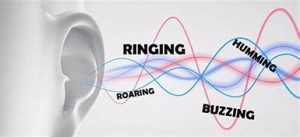Tinnitus is a debilitating and frustrating problem that affects hundreds of thousands of people world-wide. For those that don’t suffer from it, it is difficult to relay the ongoing suffering it causes for those who are unable to cure their condition.
A seemingly ‘minor’ ailment to those who don’t understand, sometimes seeking help can feel silly or unnecessary. Nothing could be further from the truth. In fact there has been enormous research into the causes of tinnitus, and even more research into overcoming the problematic effects of this disturbing, non relenting intruder.
Do we need to define tinnitus?
We could, but if you suffer from it, you have more than likely already identified that the ringing in your ears is what is known as tinnitus. There are many different reports of how tinnitus is experienced. It can be constant, intermittent, soft/loud, various pitches. It can be not bothersome, or it can be very bothersome. In all cases, tinnitus should be discussed with your doctor, and if it is causing you any level of concern or bother, you should know there are lots of options on the table to remedy this pest.
What are the Latest Tinnitus Treatments?
The latest treatments are plentiful. But the first step is to have a comprehensive tinnitus assessment. A tinnitus assessment is where a qualified audiologist can assess your tinnitus in lots of different ways to enable them to recommend the best treatment options. The assessment will include an evaluation on the intensity (volume) of the tinnitus you are experiencing, the pitch or tone of the sounds, an overall health check of issues that may be contributing to your tinnitus, and a hearing and balance check. These checks are essential before recommendations can be made that are suitable for you.
What’s Next?
The general range of options for treating tinnitus are growing by the day. Hearing Aids will be a number one option to kill two birds with one stone, as hearing aids may be able to assist with your hearing, but have also been proven to reduce tinnitus when they are being worn.
Tinnitus maskers have also shown to be very effective for some tinnitus sufferers.
Health changes, such as reducing salt intake, exercising and reducing stress have also been proven to reduce tinnitus.
Behavioral therapies may also assist. Such therapies teach you to disassociate your tinnitus with any emotions which may be reinforcing your perception of tinnitus. These therapies have also proven to be very effective. For more information about cognitive therapy treatments read more from the ATA association. Such therapies are also available in Australia via most ENT clinics.



